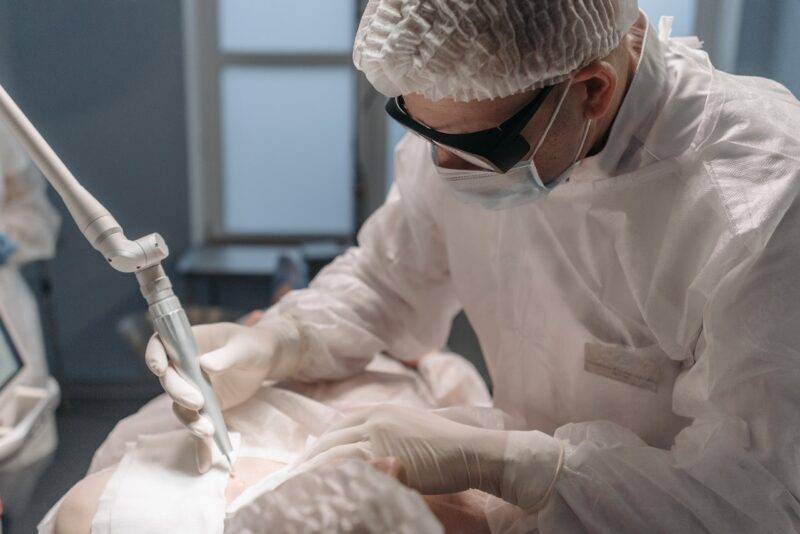Tattoos have been a part of human culture for thousands of years, but not all tattoos stand the test of time. While some people may regret getting a tattoo, others may simply outgrow their old design or want to make room for a new one with a cover up tattoo. Fortunately, there are several options available for removing or covering up unwanted tattoos. In this essay, we will discuss the different methods available for removing or covering up tattoos and the factors that influence their effectiveness.
Removing a tattoo is a popular option for those who no longer want a tattoo. There are several methods available for removing tattoos, but they are not all equally effective or safe. One of the most popular methods for removing tattoos is laser tattoo removal. This process involves using a laser to break up the ink particles in the skin, which are then absorbed by the body’s immune system and eliminated over time. Laser tattoo removal can be effective, but it may require multiple treatments over several months to achieve the desired results.
Another option for tattoo removal is surgical excision. This involves cutting out the tattooed skin and stitching the surrounding skin back together. While this method can be effective for small tattoos, it is generally not recommended for larger tattoos, as it can result in scarring and may require a longer recovery time.
Chemical tattoo removal is another method that involves applying a chemical solution to the skin to break down the ink particles. While this method may be less expensive than laser tattoo removal, it can be more painful and may not be as effective.
Cover up a tattoo
Covering up a tattoo is another option for those who no longer want their current design. Cover-up tattoos involve using a new design to cover up the old tattoo. Cover-up tattoos can be effective, but they require careful planning and execution. The new design must be larger and darker than the old tattoo to effectively cover it up. In addition, the artist must be skilled in creating designs that can effectively conceal the old tattoo and blend in with the surrounding skin.
The effectiveness of tattoo removal or cover-up depends on several factors, including the size, location, and color of the tattoo, as well as the age and type of ink used. Darker tattoos may be more difficult to remove or cover up than lighter ones. Tattoos that are located on areas of the body with thicker skin, such as the arms or legs, may be easier to remove or cover up than tattoos on more sensitive areas, such as the neck or face.
The age and type of ink used in the tattoo can also affect the effectiveness of removal or cover-up. Older tattoos may be more difficult to remove or cover up, as the ink particles may have spread deeper into the skin over time. In addition, tattoos that use certain types of ink, such as white or fluorescent inks, may be more difficult to remove or cover up than traditional black or colored inks.
In addition to the factors mentioned above, the success of tattoo removal or cover-up also depends on the skill and experience of the tattoo artist or dermatologist performing the procedure. Choosing a qualified and experienced professional is critical for achieving the desired results and minimizing the risk of complications.
It is important to note that tattoo removal and cover-up procedures are not without risks. Laser tattoo removal can cause pain, swelling, blistering, and scarring. Surgical excision can result in scarring and may require a longer recovery time. Chemical tattoo removal can be painful and may result in skin discoloration or scarring.
In conclusion, there are several options available for removing or covering up unwanted tattoos. Laser tattoo removal, surgical excision, and chemical tattoo removal are all effective methods for removing tattoos, but they each have their own risks and limitations. Cover-up tattoos can be an effective option for those who no longer want their old tattoo, but they require careful planning and execution. Ultimately, the decision to remove or cover up a tattoo is a personal one, and it is important to carefully consider all options and their potential risks and benefits before making a decision.
If you are considering tattoo removal or a cover-up tattoo, it is important to do your research and choose a qualified and experienced professional to perform the procedure. You should also have realistic expectations about the outcome of the procedure, as complete removal or coverage may not be possible.
It is also important to take care of your skin before and after the procedure. If you are undergoing laser tattoo removal, you should avoid sun exposure and use sunscreen on the affected area to prevent further damage to the skin. If you are getting a cover-up tattoo, you should keep the area clean and follow your artist’s instructions for proper aftercare.
Overall, tattoo removal and cover-up are viable options for those who want to change or remove an existing tattoo. With the right approach and careful consideration, you can achieve the desired results and move on from your old design. Check out our forecasts for tattoo designs you may want to consider in the future.
